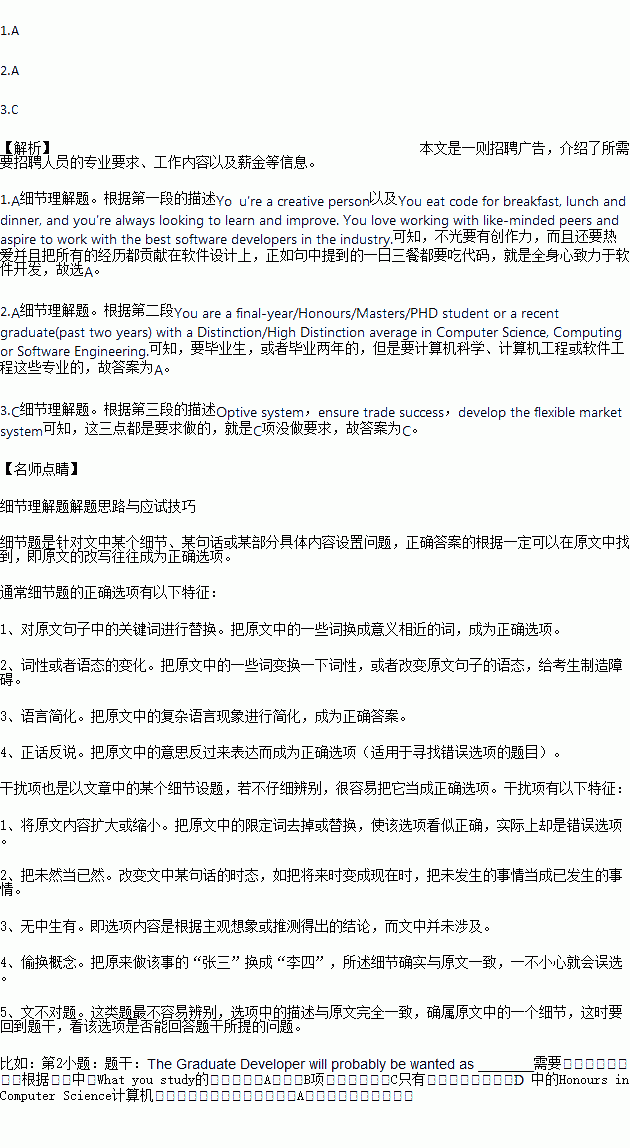题目内容
Graduate Developer
Who You Are
You’re a creative person who’s brilliant at making smart decisions and even better at communicating them. You are passionate about software and not only like to learn about it at University, you like to get involved in your own projects at home too. You eat code for breakfast, lunch and dinner, and you’re always looking to learn and improve. You love working with like-minded peers and aspire to work with the best software developers in the industry.
What you study
You are a final-year/Honours/Masters/PHD student or a recent graduate(past two years)with a Distinction/High Distinction average in Computer Science, Computing or Software Engineering.
What you will do
You’ll develop reliable and highly flexible systems in the market. The kind of software that ensures we buy and sell faster and more efficiently than anyone else. You will have full responsibility for designing and improving our systems, both technically and functionally to improve our trading success. At Optive we have no shortage of interesting and important work to do, so rest assured that you’ll be working on something that will add real value to the business.
Qualifications
You are an Australian or New Zealand citizen or Permanent Resident of Australia.
Salary
$75,000 plus super plus performance driven profit share.
1.You will be well-accepted if you are ________.
A. creative and devoted to software Engineering
B. loving working with people from different majors
C. communicative and passionate in your university life
D. enjoying eating code instead of delicious family dinners
2.The Graduate Developer will probably be wanted as ________.
A. a final-year Computing Engineering student
B. a master-degree graduate majoring in trading
C. a PHD student as a permanent resident in Australia
D. a recent graduate with Honours in Computer Science
3.You are not required to ________ in the future job.
A. design Optive system B. ensure trade success
C. work on something valuable D. develop the flexible market system
 名校课堂系列答案
名校课堂系列答案
